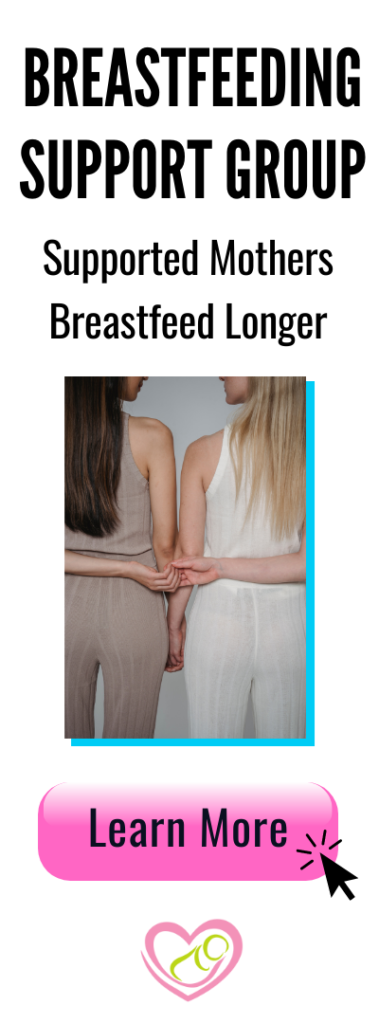Understanding DMER- How Does It Impact Breastfeeding?
May 4, 2022 2024-06-20 17:22Understanding DMER- How Does It Impact Breastfeeding?
Understanding DMER- How Does It Impact Breastfeeding?

A small percentage of breastfeeding mothers experience a condition known as Dysphoric Milk Ejection Reflex (DMER). Mothers describe DMER as a wave of negative feelings when they begin to feed. It occurs suddenly, and disappears within seconds, or may take up to 10 minutes. The range of emotions includes: dizziness, sadness, irritation, restlessness, anger, panic, or depression/anxiety. In some severe cases mothers may experience waves of suicidal ideation or severe depression. Some women feel these symptoms are so severe, they discontinue breastfeeding.
Why Does This Happen?
We don’t know yet exactly why this happens to some mothers and not others. It does appear to be physiological, not psychological, meaning it is a function of physical and chemical processes. D-MER is not a component of postpartum depression or other perinatal mood disorders, but may occur simultaneously. One theory is that prior experience of significant stress may make a mother’s brain overreact to current stress, causing her to
protect herself and baby. Others believe it may be caused by the increase in prolactin that is released when milk ejection happens. However, currently, the strongest theory indicates that it has to do with the sudden decrease in the brain chemical dopamine, that occurs just before milk is released. Research is limited, as D-MER has only recently been recognized. More research is needed, but in the meantime, there are ways to help.
What Can We Do To Help?
Classical conditioning can help. By helping a mother’s hormonal system upregulate oxytocin while downregulating her stress system, symptoms can be relieved.
- Promote safety: Surround yourself with people you trust and who make you feel safe. This may mean blocking others’ access to you if needed. The goal is to TURN OFF the hyperactive stress response.
- Skin-to-skin contact with your baby: This is a potent way to increase oxytocin and down-regulate the stress response. Research consistently shows that stress is reduced in both baby and mothers during skin-to-skin contact, which may override negative reactions in mothers.
- Massage: Massage has strong links to the anti-stress (parasympathetic) system, which can help decrease stress and increase positive feelings.
- Mindfulness: This involves paying attention to breathing, and observing, but not engaging with thoughts. When flooded with the negative symptoms of D-MER, focus just on breathing in the moment and treating yourself with compassion. Remind yourself that these are just thoughts, not facts.
- Environmental Factors: Actions such as keeping a clean and orderly environment, turning on soothing music, using aromatherapy, and making sure you have comfortable seating, are all ways to downregulate the stress response.
- Warmth: Warmth increases the oxytocin response. Oxytocin is “the love hormone” and is responsible for feelings of love, bonding, and overall well-being. Apply a hot pack to your shoulders, soak your feet in a warm bath, cover your lap with a warm blanket. The goal is to feel comfortable and safe.
- Self Care: Activities that have a positive effect on dopamine levels are encouraged. Dopamine is involved in helping us feel pleasure as part of the brain’s reward system. Some dopamine inducing activities include rest, hydration, exercise, and positive self talk. Also, focusing on breastfeeding and not on pumping excessive amounts of milk can help ease symptoms.
- Nutrition: A diet rich in antioxidants, as well as certain nutritional supplements may help improve dopamine synthesis. Caffeine and metoclopramide (prescribed to increase milk volume) should be avoided, as they have been shown to worsen D-MER symptoms. Please keep in mind that nutritional needs and individual responses to herbs and supplements vary, so please consult with your physician and a registered dietician or naturopath for help. Do not self-prescribe.
We’re here to help you in any way we can. We provide in-person or virtual consults with our highly skilled, compassionate lactation consultants (IBCLCs), and you are always welcome to join us in an uplifting, non-judgmental FREE Online Breastfeeding Support Group.
***The information provided on our website is intended solely for general educational and informational purposes only. It is neither intended nor implied to be a substitute for professional medical advice. Always seek the advice of your physician for any questions you may have regarding your or your child’s medical condition. Never disregard professional medical advice or delay in seeking it because of something you have received in this information.***
Search
baby bottle feeding breastfeeding breastfeeding latch breastfeeding pain breast milk storage breast refusal bugs cedar park regional clogged duct contraceptives daycare discharge doula engorgement exercise foremilk galactogogues hindmilk hospital how to latch baby labor low milk supply low supply massage mastitis newborn care nursing strike nutrition pacifiers plugged duct plugged ducts postpartum prenatal pumping relactation siblings sleep sore nipples breastfeeding suck training tax breaks thrush tongue tie video weaning
Search



